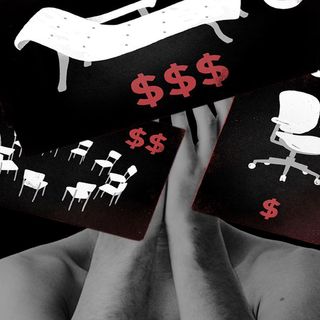Sex work in India exists as a paradox. Governed by the Immoral Traffic (Prevention) Act, 1956, later updated to the Immoral Traffic (Prevention) Act (2006), sex work is legal in India as long as a multitude of requirements are met: the sex worker must operate alone (brothels are illegal) and they must not operate in public; soliciting publicly, such as on street corners, is illegal for both clients and sex workers. Sex work in India, then, is not truly legal — since these rules that prevent sex workers from availing institutional support make them vulnerable to abuse and exploitation. The supposed legalization of sex work, only in name, has not done anything to protect sex workers.
Which is why advocates for sex workers’ rights argue legalization is not the ideal policy to govern sex work. Frontline advocates for sex worker rights say decriminalization, rather than further legalization, is the safest, most empowering way to move forward.
The further legalization of sex work would mean “regulation and control by the state authority ushering a zone-specific ‘licence raj’ with mandatory health check-up, criminalizing defaulters. It could also mean criminalizing of some aspects of sex work e.g. clients,” co-writes Meena Seshu, the founder of the non-governmental organization SANGRAM, with Aarthi Pai, a fellow activist and legal adviser for sex worker-led advocacy group Veshya Anyay Mukti Parishad (VAMP). Decriminalization of sex work, on the other hand, “is the repeal or amendment of laws or statutes which make certain acts criminal, so that those acts are no longer crimes or offenses.”
Related on The Swaddle:
New Revision to Anti-Trafficking Bill Doesn’t Account For Consensual Sex Work
Proper legalization of sex work, Seshu and Pai write, would require sex workers to register with the government to obtain licenses to conduct their business, which would deter many in India who choose to work privately or in secret, due to the social stigma attached to sex work. Until such stigma is dealt with — a long, arduous and gradual process — legalization, even if implemented properly, would still not protect all sex workers. Under legalization, social stigma would still keep some sex workers from registering with the government and working openly, which would keep them criminalized in the state. This criminalization would prevent them from availing of benefits such as institutional help to combat violence, health issues and harassment.
“India has a vast number of home-based, part-time and hidden sex workers who will become criminalized in such a regulatory regime,” Seshu and Pai write. And when sex workers are criminalized, they are used as “a primary means by which the police meet arrest quotas, extort money, and extract information.”
According to a study of 3,000 sex workers conducted by Sangram and VAMP, 37% of sex workers said they faced physical violence from the police and 51% said they faced verbal abuse. The agencies found “people in positions of authority routinely demand sexual favors from sex workers for speedy redress of grievance or accessing entitlements. They regularly verbally abuse sex workers using specific sexual innuendo and language. The law enforcement is regarded by sex workers as the most repressive state agency. Police abuse sex workers, illegally detain, sexually assault and torture them in custody.” With legalization, a highly prejudiced and abusive police force would be in charge of issuing and maintaining licenses for sex workers, which could lead to further stigmatization and abuse for certain sex workers who, fearing stigma or institutional abuse, choose not to comply with regulations, according to Seshu and Pai.
They add that licenses would restrict the movement of sex workers, as they are issued for a certain area or zone — thus making it difficult for sex workers to carry out their work across state lines.
Case studies from Nevada, an American state in which sex work is legal in some counties, shows legalization of sex work made health checks mandatory for sex workers. These compulsory health checks only serve to increase stigma against sex workers, Seshu and Pai write, as it propagates the faulty image of sex workers as vectors of disease. UNAIDS and the World Health Organization have condemned the imposition of such mandatory health checkups. Seshu and Pai add, “It is well settled that such coercive practices [alienate] vulnerable populations and [drive] them away from the resources that they need to safeguard their health and the health of their partners.”
Related on The Swaddle:
‘From Durban to Tomorrow’ Shows the Fight Against HIV is Far From Over
The drawbacks of legalization make it an untenable policy move when we discuss sex workers’ rights. Looking at the paradox in which sex work exists in India today, Seshu and Pai argue decriminalization of sex work is the best way forward. It will help “sex workers address abusive or sub-standard or unfair working conditions instituted by state and non-state actors,” Seshu and Pai wrote in a statement. Decriminalization would remove criminality from sex workers’ work and existence, therefore empowering them to seek legal recourse against exploitation and institutional support for facilities such as healthcare, as per their will. In regions where decriminalization of sex work has been implemented, “violence directed at sex workers is reduced, relations between sex workers and the police are improved, and access to health services is increased,” they add.




